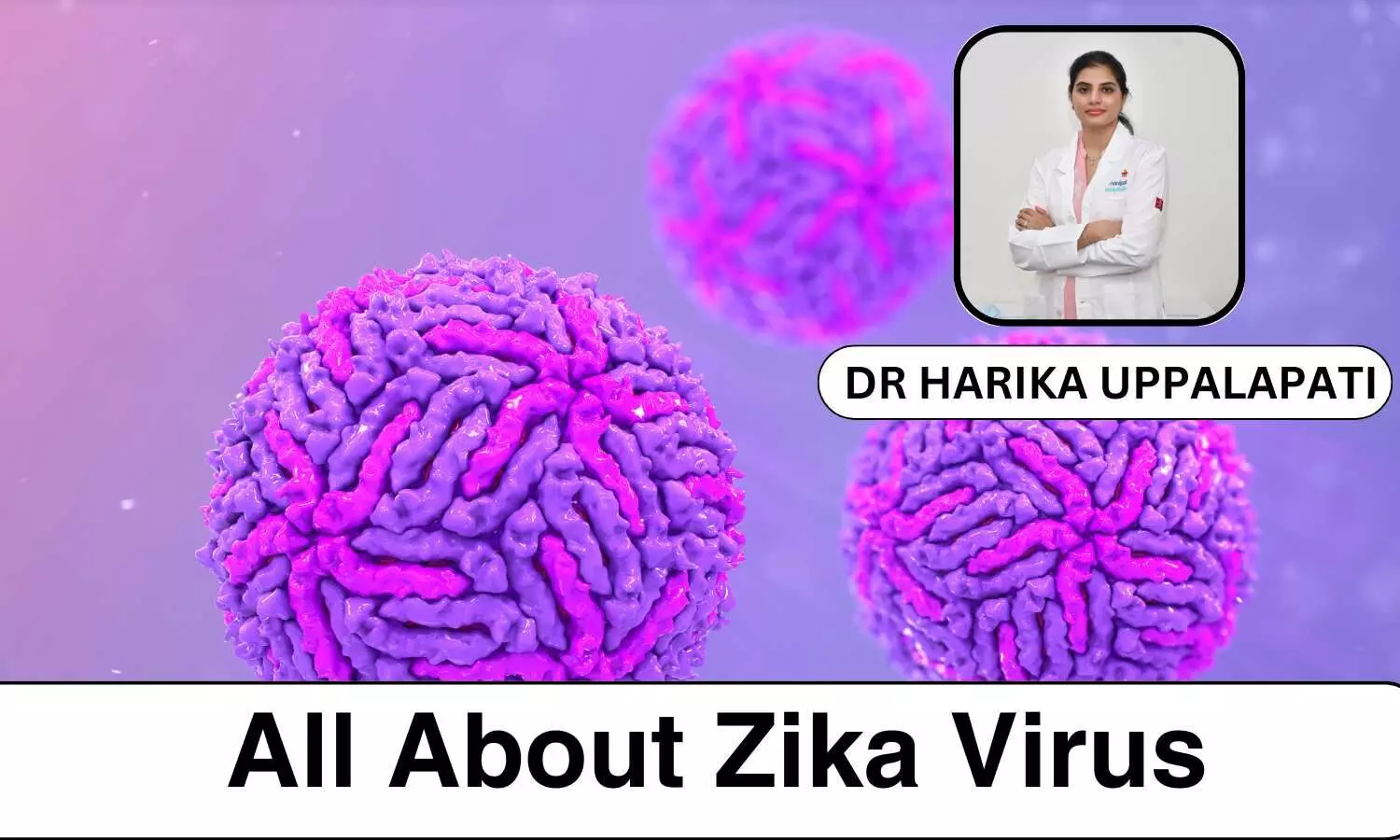Zika Virus 101: Key Symptoms, How It Spreads, and How to Stay Protected - Dr Harika Uppalapati

In the last 10 years, Zika virus which is a public health problem of utmost importance manifested itself as a significant strain. The infection is caused by primarily daytime active Aedes mosquitoes, such as Aedes aegypti and Aedes albopictus, and can result in a variety of manifestations including severe complications, especially when the patient is expectant.
Transmission of Zika Virus
The main way that the Zika virus is transmitted is through the bites of infected mosquitoes belonging to the genus Aedes, especially during the daytime. Because such mosquitoes are concentrated in the tropical and subtropical, or the most heated geographical alternate zones, such territories are at a higher risk of outbreaks of Zika virus.
It should be noted that there are other transmission routes for the disease such as sexual intercourse between people from different geographical locations while one of them may or might have been infected with Zika; a mother who's pregnant passing it on to her child, baby through breastfeeding among others.
Zika is sexually transmitted with the detection of virus particles in semen, vaginal fluid thus other juices around our bodies: pregnant mothers face additional risks involved in urban settings where there are high risks due to the existence of an alternative methodology involved when making decisions on which act to take in life: Zika transmission through mosquito bites.
Additionally, although less common, the Zika virus can be transmitted through blood transfusions, organ transplants, and laboratory exposure.
Incubation Period and Symptoms
People are usually infected with the Zika virus when they have been bitten by mosquitoes carrying the virus at least three days to two weeks earlier. When an infected person is bitten by a mosquito again, the worm enters the bloodstream and starts multiplying until it spreads to other parts of the body. It is difficult to detect and manage ZIKV disease due to variations in clinical manifestations, with symptoms ranging from asymptomatic cases to severe forms.
The most frequent among them consist of arthralgia, and myalgia among others as illustrated above fever; maculopapular rashes being just examples; red eyes without pus commonly called nonpurulent conjunctivitis etcetera.
These usually last from few days up to one week before disappearing on their own without any serious effect even though some may experience severe pains in the ears within which one year can be said about one in ten individuals that were inoculated through infected mosquito bites during sexual intercourse with placental mammals from monkeys dying due to haemorrhagic fever caused by Ebola virus while other case involves those which skin was broken before being bitten by an infected mosquito but ends up showing no signs whatsoever just like nothing happened.
Zika Virus and Pregnancy
One of the most worrying issues regarding the Zika virus is its effect on pregnancy. Whenever a pregnant woman gets infected with it, the Zika virus is capable of passing through the placental barrier and getting into the unborn child.
A disease that is transmitted this way is what causes the variety of grave disorders seen in cases like this; these are referred to as “congenital Zika syndrome” because they all result from infection during pregnancy. The most notorious one among them is microcephaly; this entails an infant whose head size appears extremely tiny because brain development stopped.
Treatment
There is no treatment specifically for Zika virus infection at the moment. Shakira's management focuses on symptom relief and ensures quick recovery. These include:
- Rest: Allowing the body to recover and conserve energy.
- Hydration: Drinking plenty of fluids to prevent dehydration, especially in cases of fever.
Patients are advised to seek medical attention if symptoms worsen or if they develop signs of severe complications.
Prevention and Precaution
Preventing Zika virus infection is crucial, particularly for pregnant women and individuals living in or travelling to areas with active transmission. Key prevention strategies include:
- Screening Pregnant Women: Pregnant women should be screened for Zika virus, especially if they have travelled to areas with active Zika virus transmission or if they exhibit symptoms.
- Using EPA-Registered Insect Repellents: Insect repellents that are registered with the Environmental Protection Agency (EPA) are proven to be effective and safe for use during pregnancy. Repellents containing DEET, picaridin, IR3535, and oil of lemon eucalyptus are recommended.
- Wearing Long-Sleeved Clothing: Covering exposed skin with long-sleeved shirts and long pants can reduce the risk of mosquito bites.
- Controlling Mosquito Populations: Implementing measures to control mosquito populations both indoors and outdoors is essential. This includes using window screens, air conditioning, and mosquito nets, as well as eliminating standing water where mosquitoes breed.
Diagnosis
An accurate and timely diagnosis of Zika virus infection is essential for managing and controlling outbreaks. Two primary testing methods are available:
- PCR Testing: Polymerase chain reaction (PCR) testing detects the genetic material of the Zika virus in blood or urine samples. A positive PCR test confirms the presence of Zika virus infection. Blood samples should be collected within 10 days of symptom onset, while urine samples can be collected within 14 days.
- Serological Testing: Serological tests detect antibodies against the Zika virus in the blood. These tests can help identify past infections but are less effective in confirming recent infections due to cross-reactivity with other flaviviruses, such as the dengue virus.
While PCR testing is the preferred method for diagnosing acute Zika virus infection, serological testing can provide valuable information about the spread of the virus in a population.
Current Status and Future Directions
Right now for the Zika virus no vaccine has yet been found. However, various measures are being taken to develop a reliable and safe vaccine, but this could not be before a period that lasts for many years. Consequently, preventive measures as well as early diagnosis are still being emphasized among other public health concerns.
In conclusion, the Zika virus remains a significant public health challenge due to its potential to cause severe birth defects and neurological complications.
By understanding the transmission routes, recognizing the symptoms, and implementing effective prevention strategies, individuals can protect themselves and their communities from this virus. Continued research and public health efforts are essential to mitigate the impact of Zika virus and prevent future outbreaks.


